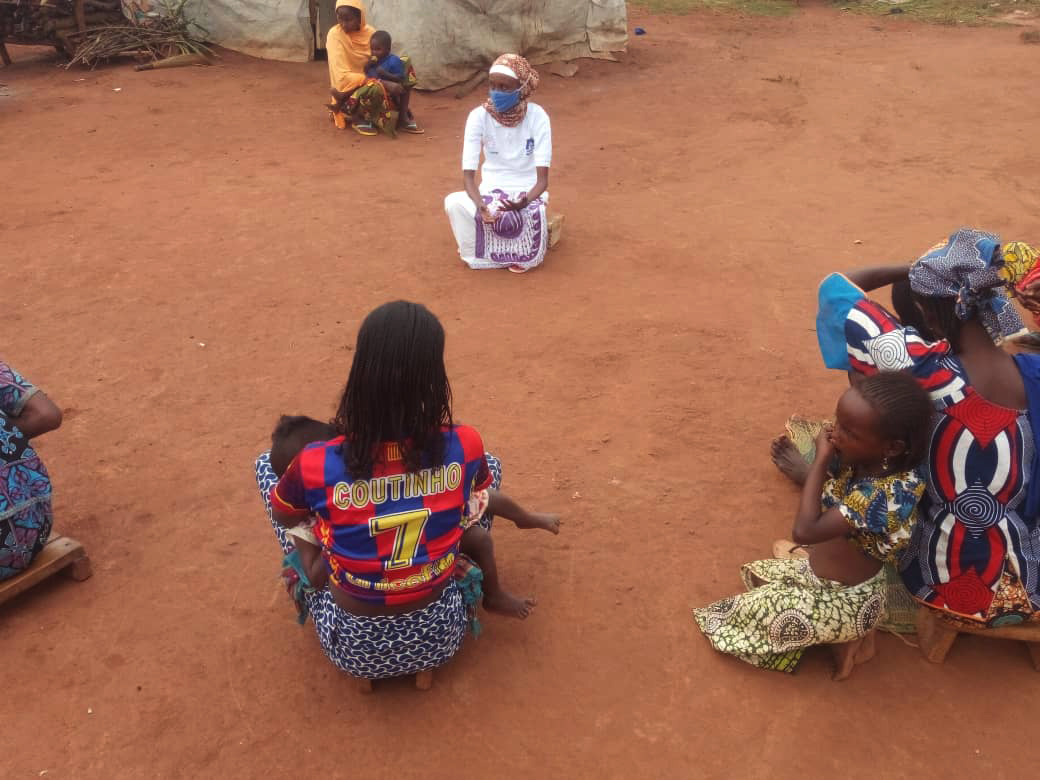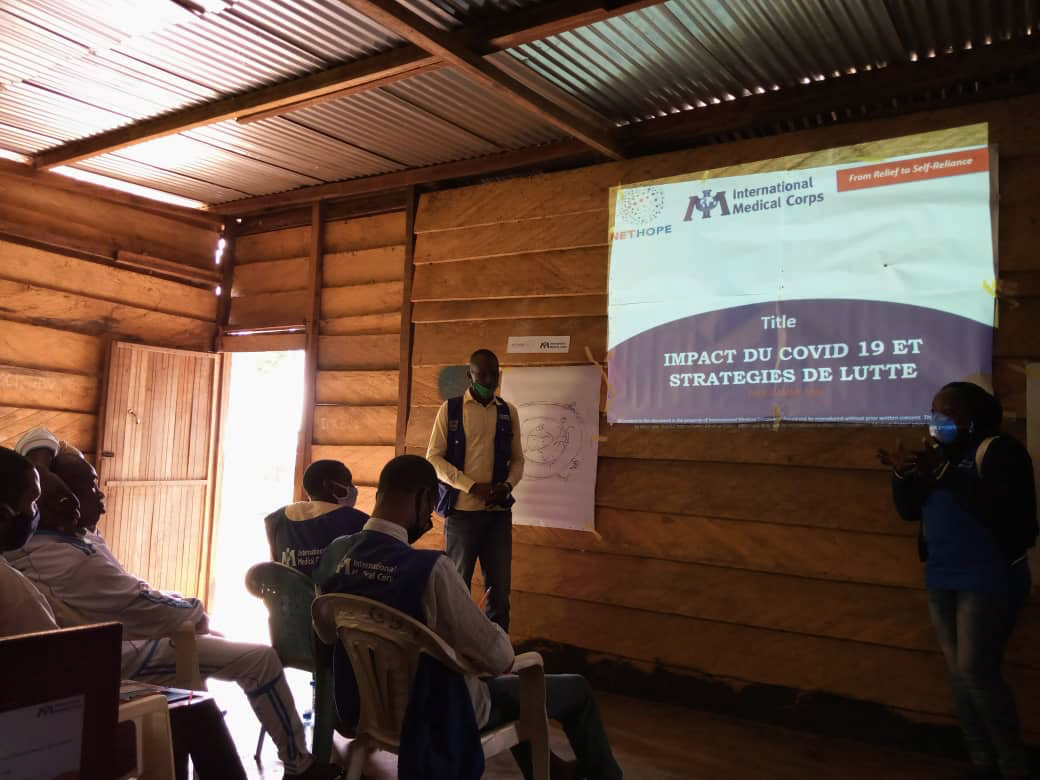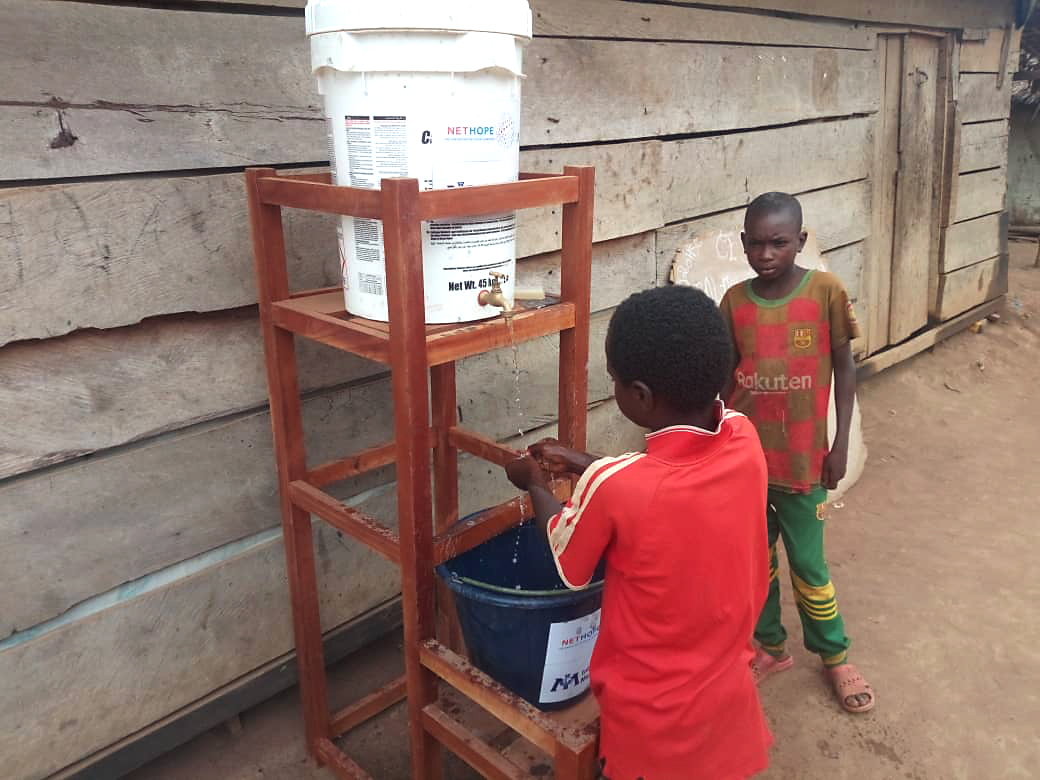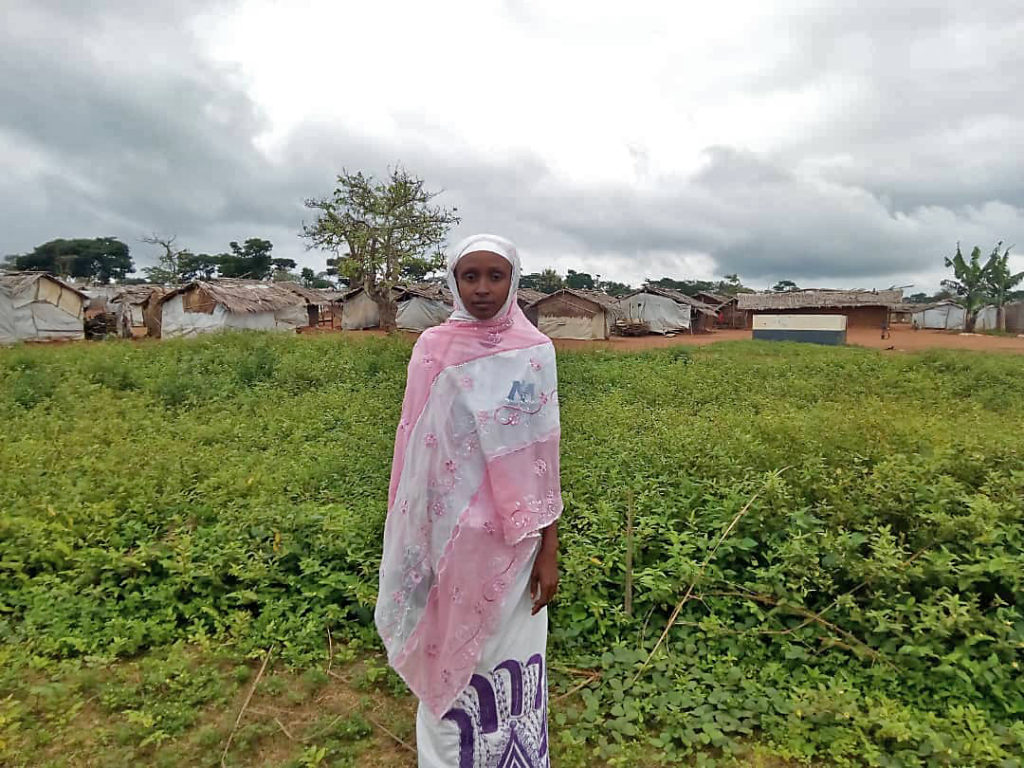My name is Misra Hariratou. I am a 24-year-old Cameroonian. In April 2020, with the COVID-19 pandemic unfolding, I was recruited by International Medical Corps to serve as a community health worker in Timangolo, Cameroon. Since then, I have been working to raise awareness of the virus and change community behavior to help prevent spread of the virus.

Before COVID-19, the refugee community in Timangolo observed Fulani cultural practices, such as shaking hands during greetings, using “boutas” kettles during daily prayers, and gathering during funerals, baptisms and meals. My colleagues and I worked to educate the community on handwashing with soap, social distancing, mask wearing and coughing or sneezing into one’s elbows. All of these measures are helping to stop the spread of COVID-19 in Timangolo.

The messages conveyed during our community education efforts have had a positive effect, as we have noticed a change in behavior. For example, people wear masks when they go out now and the elderly do not go out as much as before. Community members have come to understand that if the barrier measures are not respected, they can end up contracting the disease if they come into contact with a sick person.

I feel proud because the refugee community understands that the messages we share are not intended for them to abandon what is dear to them; it is simply a means to protect them. We have been using this opportunity to relay other important health messages that can improve the community’s well-being, especially at a time when the world is going through a health crisis. We intend to carry out other actions to improve the lives of refugees in the community of Timangolo, and I look forward to being part of these efforts.
International Medical Corps began working in Cameroon in 2008 in response to an influx of refugees from the Central African Republic (CAR) along Cameroon’s eastern border. Today, Cameroon hosts an estimated 372,000 refugees from the neighboring countries of Nigeria and CAR, in addition to nearly 200,000 internally displaced persons. As Cameroon struggles to meet the needs of these resource-poor populations, International Medical Corps is there providing basic healthcare, nutrition, gender-based violence prevention and response services, child protection, and water, sanitation and hygiene services in the underserved East, Adamaoua, North and Far North Regions.
The generous support of Nethope enabled International Medical Corps to train and support community health workers like Misra in Timangolo, and respond to the COVID-19 pandemic in Eastern Cameroon.
